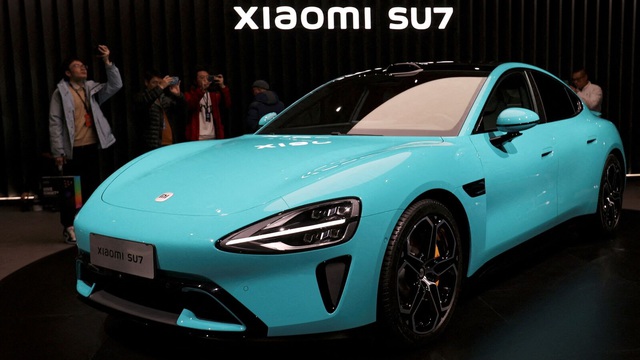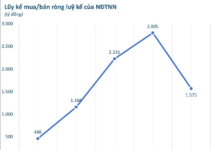Xiaomi Loses $200,000 on Each Electric Car Sale
Chinese tech giant Xiaomi grabbed headlines in March when its first electric car offering sold out, garnering nearly 90,000 pre-orders in just one day after its launch.
Xiaomi claimed it was on track to meet its target of delivering the first 100,000 units of the Speed Ultra 7 by November. But despite promising sales figures, the company reported a loss of $252 million in the second quarter ending June 30.
The nascent electric vehicle manufacturer disclosed that it delivered 27,307 SU7s in Q2, translating to an average loss of $9,200 (over $200 million VND) per car. The base price of the SU7 is 215,900 RMB, equivalent to approximately $30,000 (nearly $750 million VND).

This doesn’t imply that Xiaomi’s losses compound with each additional car sold. The company reported a higher-than-expected gross profit margin of 15.4%. However, indications suggest that its automotive division will take considerable time to break even, something CEO Lei Jun alluded to back in April when he mentioned that the cars were being sold at a loss, although he didn’t specify the extent.
Citibank analysts anticipate that Xiaomi will turn a profit only after attaining an annual sales volume of 300,000 to 400,000 vehicles. They forecast sales of 260,000 cars by 2026.
Xiaomi operates its self-built electric vehicle manufacturing plant. Since June, the company has been running double shifts to ramp up monthly deliveries to over 10,000 cars. A spokesperson shared with Business Insider that the company is focused on scaling up its electric vehicle division to dilute the per-unit cost.
“Xiaomi’s first electric vehicle is a fully electric sedan, and the investment cost is relatively high, so it will take some time to balance this cost,” the spokesperson explained.
Lei Jun, the billionaire co-founder of Xiaomi, proclaimed in March that he intended to inject “tens of billions of dollars in investment” in the coming years to build up Xiaomi’s electric vehicle and automotive technology division.
The technology company has long proclaimed its vision for the SU7 as creating a smart car that can rival Elon Musk’s Tesla but at a price affordable to the average Chinese consumer.
Xiaomi shared that customers continue to flock to the company, with a total of 13,000 cars sold in Q2 and July.
The company’s ambitions for its electric vehicle line go even further, encompassing autonomous driving and parking capabilities, along with an AI-based voice assistant slated for rollout this month.
Overall, Xiaomi posted robust financial results for Q2, with revenues across all segments rising 32% to 88.7 billion RMB compared to the same period in 2023.

Net profit also reached 5 billion RMB, up 38% from 3.6 billion RMB in the same quarter last year. The company stated that it plans to produce various electric vehicle models beyond the SU7 but didn’t specify which models.
Why is Xiaomi in the Electric Vehicle Business?
Xiaomi, renowned as a manufacturer of smartphones and consumer electronics, commands a 13% share of global and Chinese smartphone sales in the final quarter of 2023, according to Counterpoint Research data. It ranked 5th in China for the full year.
Despite the known financial drain, Xiaomi ventured into electric vehicles to leverage its existing technology in smartphones, smart TVs, and other affordable devices interconnected within an ecosystem they term “Man-Vehicle-Home.”
Tu Le, founder of Sino Auto Insights consulting firm, stated that Xiaomi is attempting to close the loop by adding transportation services to its portfolio already integrated into its customers’ personal and professional lives.
“The ability to be a continuous part of someone’s life is the goal of tech companies,” Le told NBC News. “You won’t find anyone in Beijing who doesn’t have at least one Xiaomi product, be it a mobile phone, computer, TV, air filter, or tablet.”
As a newcomer to the automotive industry, Xiaomi has reason to believe it can design and develop a saleable vehicle. With China’s economic slowdown and the ongoing electric vehicle price war, analysts predict it will take one or two years to determine if Xiaomi can adapt, rectify any mistakes, and succeed.
“There is the advantage of being a tech company, but Xiaomi needs to balance that with learning how to be an automotive manufacturer,” Le said.
The Vingroup Chairman Offers Franchise Model for Charging Stations: Supermarkets and Cafes Get a Chance
The revenue-sharing model offers an attractive 750 VND/kWh of electricity charged, with a minimum commitment of a decade. This generous offer includes a guarantee to compensate charging station owners should V-GREEN cease operations prematurely.







































